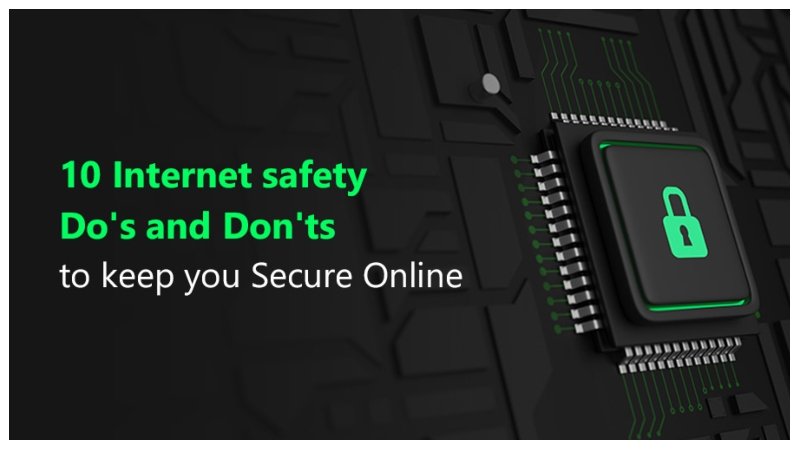As necessary as the Internet is for us, it is also home to cybercriminals, pedophiles, and hackers.
The ongoing Roblox controversy showed us that even gaming platforms for children are not safe anymore. Pedophiles and predators, disguised as young boys and girls, openly use this platform to hunt for children. They either coax their addresses out of them or trick them into sending pictures and videos of themselves, which are then misused over the internet.
Moreover, stories of internet stalkers turned real-life ones are also very common. Many social media stars like Christina Grimmie are stalked and murdered by fans who develop an unhealthy obsession with them.
All of this reiterates the fact that the internet has a dark side and that everyone should be mindful of internet safety.
As someone very passionate about cybersecurity and online safety, I am sharing the essential dos and don’ts of internet safety that everyone, including our kids, should know.
Do Not Share Everything Online
This might sound so basic, but it is, regardless of the fact that you have a public or private account. With public accounts, it is pretty self-explanatory. We do not know who silently stalks our profiles; this is why we should be very mindful of what we share online.
However, with private profiles, we often become careless about what we share online. This is because we think we are sharing that information with a closed circle. But that is not the case. Social media accounts are pretty easy to hack. So, the information you shared online might fall into the wrong hands. Your friend’s account might get hacked without you knowing, and a stranger can see your personal information, which can put your safety in danger.
Do Consider Safe Browsing
The Internet is filled with malicious websites that have viruses or portals for hackers to get access to your device and information. This is why you should always use safe browsing. This means not visiting suspicious or shady websites or clicking on links from unknown sources.
If you are skeptical about identifying unsafe websites, you can take your internet provider’s help. Most internet providers have internet security features available as add-ons. For example, Spectrum has a Security Shield service for internet security. This automatically blocks malware and phishing attacks from unsafe websites. For more information, you can contact the Spectrum customer service number, and the service rep will guide you on how you can get Spectrum’s help for internet security.
Do use a VPN, But Not a Free One
A VPN is a great way to ensure online safety. It works by establishing a private network that encrypts all your data. In simpler terms, it scrambles up your data to make it impossible to be read by a stranger. The stranger needs a decryption key to be able to read that data. Plus, a VPN also masks your IP address to make it difficult for them to trace your location.
However, while choosing a VPN, make sure you do not end up choosing a free one. The free VPNs still need to provide service, and they usually earn money by selling your personal data to third parties. Or they track and monitor your online behavior to sell it to marketing agencies.
Do Install an Antivirus Software
In some cases, the hackers send a virus or malware quietly into your device. This means you won’t notice anything even if you visit a shady site or click on a malicious link. However, the virus silently enters your device and starts wreaking havoc.
To save yourself from these silent attacks, you need to get antivirus software for your Windows. But make sure the antivirus you get is the latest one. Also, always update your device after installing the antivirus software.
Do Keep Software and Browser Updated
Updating your browser, Windows, or software every other week is annoying. But these updates are crucial, as most of these have security loophole fixes that a hacker can misuse.
If you find it hard to update all your software manually, you can set automatic updates so you do not miss a single one.
Don’t Set Up a Weak Password
Most people have their birthdays or the name of their pet as their password. However, these passwords are very easy to hack. This is why you need to have strong passwords that are long and have a combination of letters, numbers, and special characters.
Do make sure that you use different passwords for different accounts. If you find it difficult to memorize passwords, then use a password manager that saves and manages your passwords.
Following these tips might keep you safer against threats on the internet, but always remember that cybersecurity threats are always evolving in nature. This means nothing can ever guarantee complete safety. However, keeping yourself up-to-date regarding the cybersecurity world and practicing internet security definitely decreases the chances of getting attacked.
See more: UndergrowthGames Contributor: Complete Guide for Gamers

